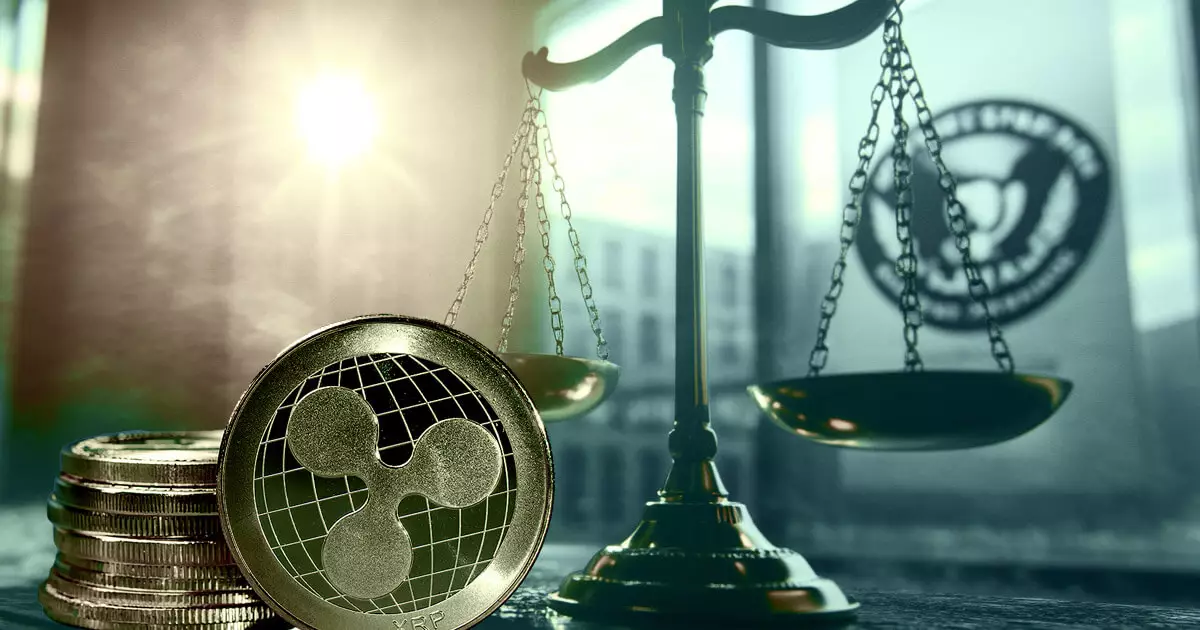In a case that continues to intrigue the cryptocurrency community, Ripple Labs finds itself at the center of regulatory scrutiny from the United States Securities and Exchange Commission (SEC). The recent filing by the SEC, which consists of a Civil Appeal Pre-argument statement (known as Form C), solidifies the agency’s position to contest certain facets of Judge Analisa Torres’s previous ruling. This ongoing legal battle represents a critical junction not only for Ripple but for how cryptocurrencies will be regulated in the United States going forward.
The SEC filed its Form C with the U.S. Court of Appeals for the Second Circuit on October 17, signaling dissatisfaction with specific elements of last year’s ruling. Judge Torres notably sided with Ripple on key points, determining that the company’s sales of XRP to retail investors on digital asset exchanges did not contravene U.S. securities laws. However, the judge ruled against Ripple regarding its institutional sales of XRP, which were deemed a violation of securities regulations. This bifurcation in Judge Torres’s ruling underscores the complexity of defining what constitutes a security in the fast-evolving digital asset space.
The SEC’s latest move to appeal certain components of this ruling could have far-reaching implications for Ripple’s business practices and the broader crypto market. As traditional finance and cryptocurrency converge, understanding how different classes of investors are treated under the law may set precedence for future regulatory clarity.
The SEC’s Focus in the Appeal
The SEC’s Form C reveals a targeted approach in its appeal. Surprisingly, the agency is not contesting the ruling concerning XRP sales to retail investors, indicating an acknowledgment of the decision’s substantial legal grounding. Instead, the appeal highlights the SEC’s objections toward Ripple’s programmatic sales of XRP on digital trading platforms, as well as the distribution of XRP to employees and affiliated parties.
This strategic focus on programmatic transactions and employee distributions reflects the SEC’s broader concerns about how cryptocurrencies are marketed and sold. Ripple executives, Brad Garlinghouse and Chris Larsen, are also under scrutiny as the SEC maintains that they played a role in facilitating illicit sales of XRP on these platforms. By including this aspect in their appeal, the SEC aims to cast a wider net in seeking accountability from Ripple’s leadership and potentially setting a precedent for individual liability in similar cases.
An important facet of the SEC’s filing is its request for the appellate court to review the case “de novo.” This legal term implies that the appellate court will revisit the legal questions with no deference to the findings of the trial court. Such a request indicates that the SEC is seeking to reassess the legal interpretations made by Judge Torres rather than simply disputing factual conclusions.
This approach could significantly change the legal landscape for Ripple and similar entities, as it allows for a fresh evaluation of key issues related to cryptocurrency classification and regulatory compliance. The potential outcomes are vast, influencing not only Ripple but also other cryptocurrencies facing similar legal scrutiny.
In the aftermath of the SEC’s filing, Ripple’s Chief Legal Officer, Stuart Alderoty, offered a steadfast dismissal of concerns raised by the agency’s appeal. He highlighted that the court’s affirmation that “XRP is not a security” remains unchallenged and continues to serve as legal precedent. Alderoty’s response aims to reassure stakeholders that, despite the SEC’s actions, a critical aspect of the prior ruling favorable to Ripple still stands intact.
Moreover, Ripple intends to submit its cross-appeal, a move that demonstrates the company’s determination to protect its interests. As the situation unfolds, engagement from the broader cryptocurrency community remains curious. Many are watching closely, anticipating that the SEC’s actions could reshape the framework under which digital assets operate in the United States.
The ongoing legal feud between Ripple and the SEC is emblematic of the broader challenges facing the cryptocurrency sector. As both parties prepare for the next steps in this complex case, the ramifications of their battle could lay the groundwork for future regulatory practices and the relationship between digital assets and traditional financial regulations. The outcome remains uncertain, but it is clear that all eyes will remain on Ripple as this pivotal legal dispute progresses.


Leave a Reply